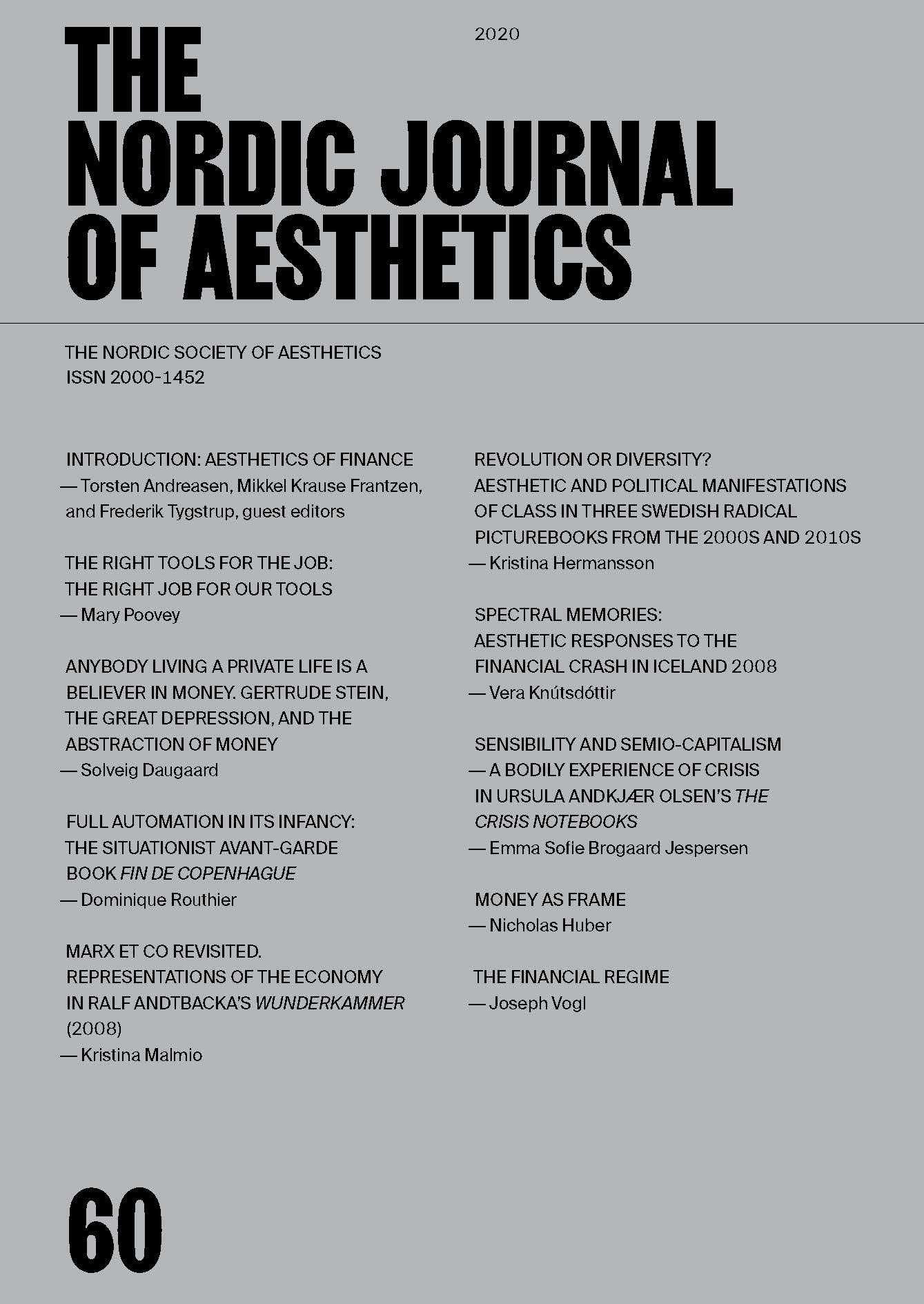MARX ET CO REVISITED. REPRESENTATIONS OF THE ECONOMY IN RALF ANDTBACKA’S WUNDERKAMMER (2008)
DOI:
https://doi.org/10.7146/nja.v29i60.122842Keywords:
Ralf Andtbacka, Experimental Poetry, Economy, Value, Marx, Post-capitalism, Cognitive MappingAbstract
The present article studies the representation of economy in Wunderkammer (2008), a collection of poetry by Finland-Swedish author Ralf Andtbacka. Going back to the historical form of cabinets of curiosities, Wunderkammer depicts acts of buying, selling, and collecting. By showing the connectivity of objects and their impact on human subjects, Andtbacka actualizes and deconstructs topics originally initiated by Karl Marx, such as value, fetish, commodifica-tion, and alienation. The portrayal of capitalism, both past and pres-ent, in the book is highly ambivalent. On the one hand, collecting functions as a critical, anticapitalistic act. On the other hand, eco-nomic discourse has invaded the text and turned the author into a writing machine powered by the energy of neoliberal labor. Besides an excess of objects, the poems display an overflow of information, a characteristic feature of a postcapitalist economy. As an exam-ple of cognitive mapping, Wunderkammer allegorically portrays humans, objects, and information in the middle of a paradoxical economic transformation.
Downloads
Published
How to Cite
Issue
Section
License
Authors who publish with this journal agree to the following terms:
- Authors retain copyright and grant the journal right of first publication with the work simultaneously licensed under a Creative Commons Attribution License that allows others to share the work with an acknowledgement of the work's authorship and initial publication in this journal.
- Authors are able to enter into separate, additional contractual arrangements for the non-exclusive distribution of the journal's published version of the work (e.g., post it to an institutional repository or publish it in a book), with an acknowledgement of its initial publication in this journal.
- Authors are permitted and encouraged to post their work online (e.g., in institutional repositories or on their website) prior to and during the submission process, as it can lead to productive exchanges, as well as earlier and greater citation of published work (See The Effect of Open Access).




